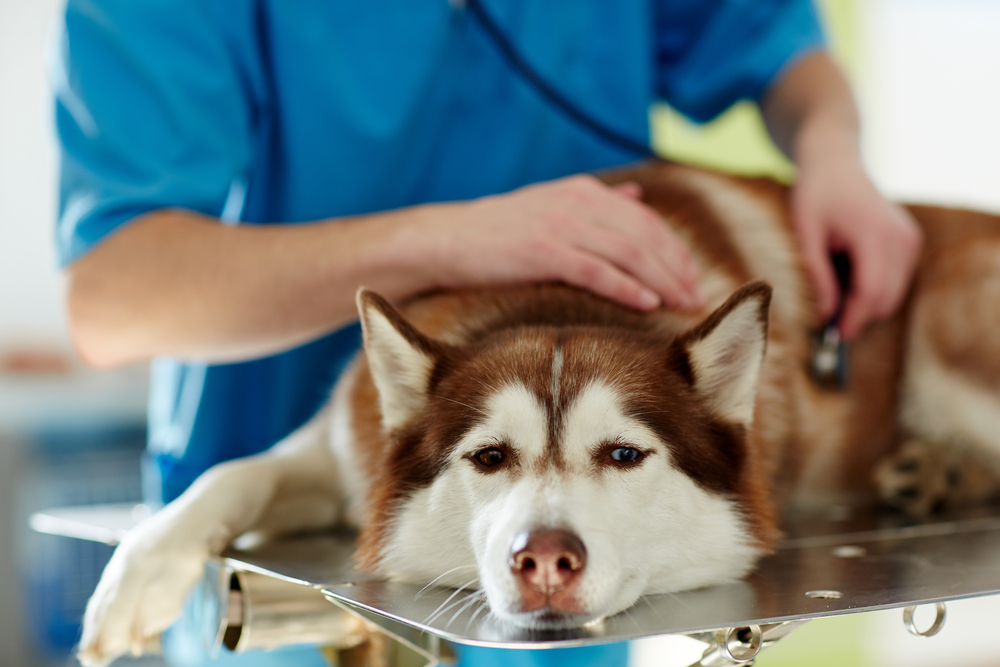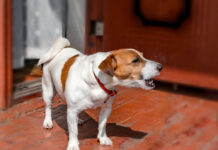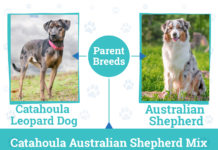Last Updated on August 5, 2024 by Dog Lover
Why Do Dogs Love Cheese?
Many dogs love cheese, and it’s often used as a high-value training treat. The reasons aren’t 100% certain, but it could be the pungent smell, savory flavor, or soft texture.
Here’s why dogs crave cheese and how to feed it safely.
Reasons Dogs Love Cheese
1. The Enticing Smell
Dogs have a keen sense of smell and are drawn to strong odors. Some cheeses have potent aromas that intrigue dogs.
Their curiosity may be piqued by the layered scents cheese offers. Normally, you don’t let your dog sniff stinky things, so they’re thrilled when allowed to eat something with a robust smell.

2. Savory Flavor
Dogs generally prefer savory flavors over sweet ones because they evolved as meat eaters. This is why cheese often tastes better to dogs than fruits and vegetables.
3. Source of Fat
Dogs need fat as an essential nutrient for energy and vitamin absorption. Cheese provides a tasty fat source that many dogs enjoy. Besides fat, cheese contains calcium, vitamin A, vitamin B12, zinc, phosphorus, and riboflavin. While dogs might not recognize the nutritional value, they certainly appreciate the taste.
4. Chewy Texture
The texture of cheese offers dogs a stimulating experience. Some dogs love the softness of cheese slices, while others enjoy chewing on hard cheese sticks. These textures provide enrichment and help combat boredom.

Is Cheese Safe for Dogs?
Most cheeses are safe for dogs when given in moderation. However, cheese is high in fat and calories, so overfeeding can lead to weight gain. Use cheese sparingly, especially as a special treat or training reward.
Considerations for Feeding Cheese to Dogs
- Lactose Intolerance: Start with a small piece, as some dogs are lactose-intolerant. Avoid cheese if it causes an upset stomach.
- Health Issues: Consult your veterinarian if your dog has health problems or takes medication. Cheese may interfere with some treatments or diets.
- Blue Cheeses: Avoid blue cheeses like Roquefort and Gorgonzola, as they contain roquefortine C, which can make dogs sick. If your dog ingests blue cheese, contact your vet or a pet poison hotline immediately.

Conclusion
Dogs love cheese for its strong smell and savory taste. Feed cheese in moderation to avoid health issues. Reserve it as a special treat to ensure your dog enjoys it in healthy portions.
FAQs About Dogs and Cheese
Can dogs eat cheese every day?
While cheese is safe for dogs in moderation, it should not be given daily. Too much cheese can lead to weight gain and digestive issues. Use it as an occasional treat rather than a daily snack.
What types of cheese are best for dogs?
Plain, low-fat cheeses like mozzarella or cheddar are generally better for dogs. Avoid cheeses with added ingredients or high fat content. Always introduce new cheeses slowly and watch for any adverse reactions.
How much cheese can I give my dog?
A small piece of cheese, about the size of a pea, is typically safe. The amount should be adjusted based on your dog’s size and dietary needs. Overfeeding can lead to health problems.
What should I do if my dog eats blue cheese?
Blue cheese can be harmful to dogs. If your dog consumes blue cheese, monitor for symptoms like vomiting, diarrhea, or lethargy. Contact your veterinarian or a pet poison hotline for guidance.
Can cheese cause allergies in dogs?
Yes, some dogs can have allergies or sensitivities to dairy products. If you notice symptoms like itching, swelling, or gastrointestinal upset after your dog eats cheese, discontinue it and consult your vet.
References























